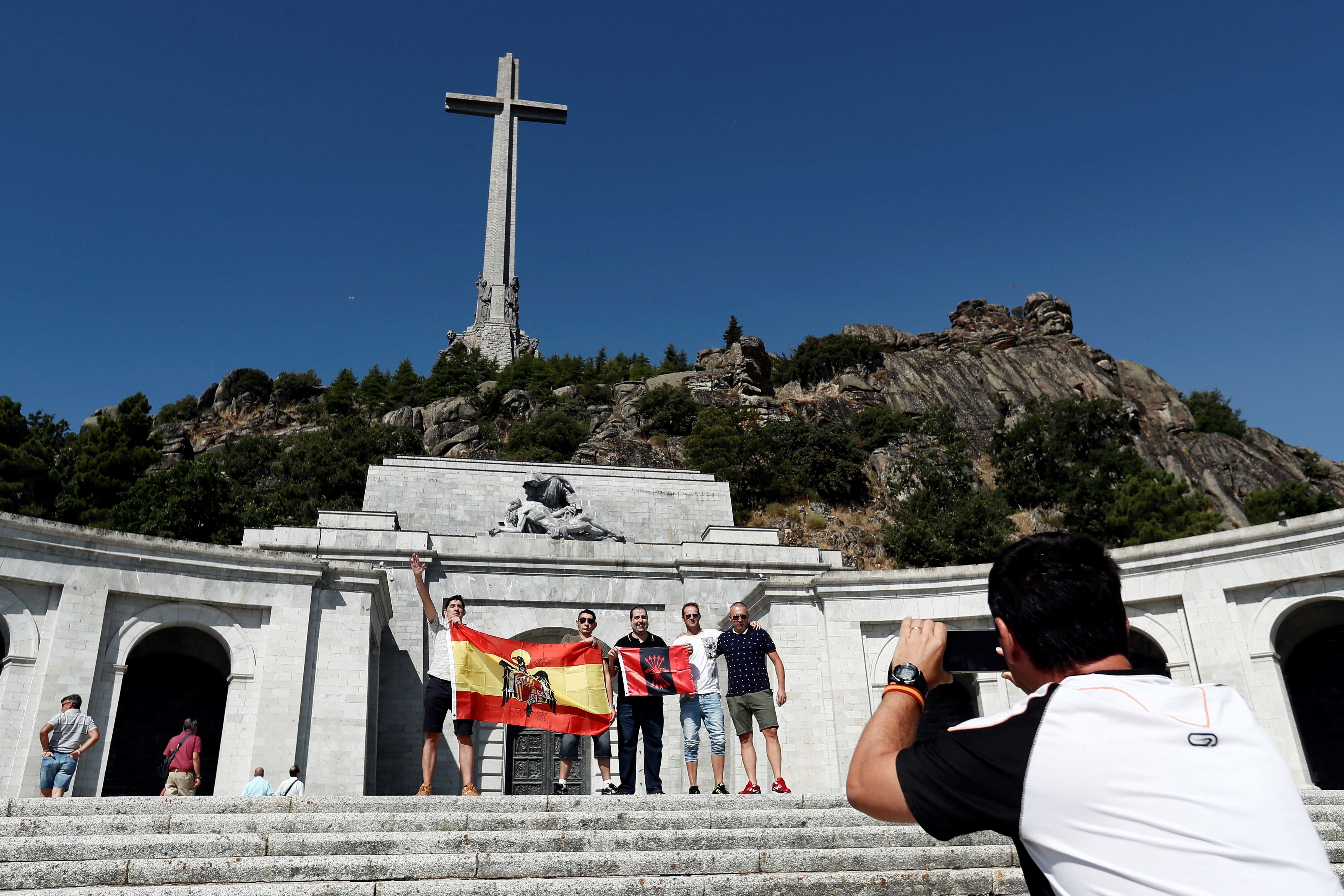"We cannot waste a single moment". That's what Spain's deputy prime minister, Carmen Calvo, said after this Friday's cabinet meeting. She was justifying the executive order the ministers had approved to pave the way for the exhumation of dictator Francisco Franco from the Valle de los Caidos, which she described as a "state tomb which exalts" him.
"It's urgent because we're late, but this government will no longer be late", said Calvo after the criticisms they've received for using an executive order for the purpose, rather than a normal bill. "Since 2014, the United Nations has said that it's not sustainable for a democracy like Spain to have the tomb of a dictator next to their victims," she said.
The deputy prime minister said that the executive order will be processed by the Congress within 30 days and will be valid for twelve months. The next cabinet meeting, on 31st August, will see them agree on the procedure to start the exhumation process. She said that, "absolutely certainly", the process will be finished before the end of the year.
The order isn't exempt from political controversy. PP has already announced they will appeal the decision to the Constitutional Court, because they believe there is no justification for urgency in this case. Nor will they vote in favour of ratifying it when it's taken to the Congress. For their part, Ciudadanos, who raise the same criticisms, have announced they will abstain from the vote. Regardless, Sánchez will have a majority between PSOE, Podemos, and Catalan and Basque parties.
"Whoever doesn't see the urgency, doesn't see it. Whoever doesn't want to endorse the basis [for the decision], shouldn't endorse it", concluded Calvo on the subject of the criticisms. She argued this type of decree is a commonly-used measure, and that it's the executive who determines the urgency of a particular question.
The family will have 15 days
According to Calvo, Franco's remains will be moved in a dignified manner. It will be first talked over with his family, to decide where to move him to. If they don't comment or present opposition within two weeks, it will be up to Pedro Sánchez's government to decide where he will be reburied.
She also said there will be no conflict with the Church, the owners of the basilica where Franco lies. "Agreements with the Church and the Holy See allow us to carry out such an action," she said.
After the exhumation, the deputy prime minister announced there will be discussions with the other parties in the Congress to give the Valle de los Caidos new significance and to tackle other questions, like the summary trials of the Franco era. The objective would be to improve the law on historical memory.
Yellow loops
In the press conference, she was also asked about the Mossos d'Esquadra, the Catalan police, identifying groups of people removing symbolic yellow loops, representing support for the Catalan political prisoners. In response, she expressed "concern": "It doesn't seem good to us that anywhere, and under any excuse, there should be those who don't contribute to social harmony". She said that symbols which "only represent a portion" of society should be limited to the "private and individual" sphere, not institutions.
As for judge Pablo Llarena's summons to appear before a Belgian court, she said that his defence falls to the judicial branch, not the executive. "He has to receive legal protection and support in the area of his own branch, the judicial one," she said. Nonetheless, she did say that "it falls to us to indicate to any other state that it cannot get involved in proceedings".
Expulsions to Morocco
Finally, Calvo was asked about the expulsion to Morocco of 116 immigrants from Ceuta, on which she wanted to draw a distinction with the Aquarius case. "We've turned to the agreement with Morocco to not accept violence", said the deputy prime minister, "it's not acceptable the risk run by the security forces". She also clarified that no minors were among the group expelled, and that none of them had requested asylum.

